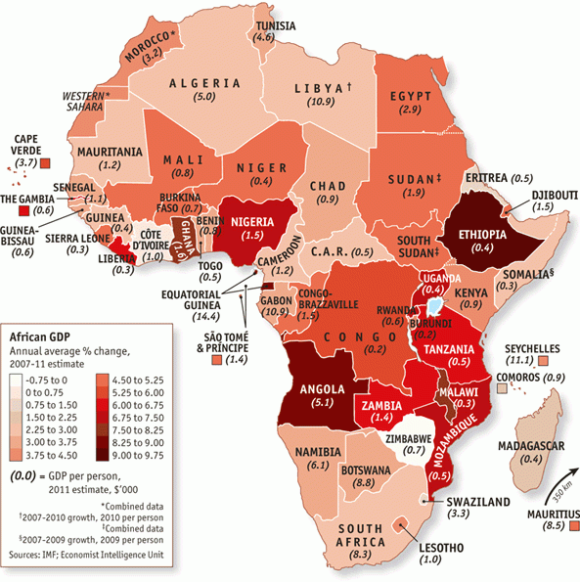Typically Africa is most known in the media as being a final stronghold for true dictators. This is the continent that endured Muammar Gadaffi’s violent management of dissent for four decades (Asser, 2011), Robert Mugabe’s racially inequal management of Zimbabwe and who could forget General Idi Amin, the butcher of Uganda (Answers Africa).
How does a country sink so low and then come back so quickly over the past few years? To that, I actually do not have an answer. The fact that it’s happening is encouraging. Gadaffi is overthrown (Asser, 2011), South Africa has shed Apartheid and democratically elected multiple leaders. Africa’s GDP is anticipated to grow another 5% in 2016, up from 2015 (African Development, 2015).
So now that we’ve moved past the age of dictators (mostly), is Africa ready and able to start growing regularly while only having to manage dilemma’s that any first world nation would have to endure? Unfortunately, this is not the case. African countries still have to manage catastrophic incidents that are only comparable to natural disasters experienced in any other country. Ebola alone slowed economic growth in many countries and created some fiscal instability to multiple countries on the continent with Guinea, Liberia and Sierra Leon taking the hardest hit (African Development, 2015).
What does all of this mean? It means that while Africa may be becoming progressively more of an appealing prospect to work with, there are very unique issues that cannot be forgotten. The range of poverty and wealth are often staggering. Disease can still run rampant and damage GDP for entire years at a time. There are most certainly still some areas that would make Africa a challenging continent to do business on.
African Development Bank Group. (2015). African economic outlook 2015. Retrieved from http://africaneconomicoutlook.org
Answers Africa. (nd). Top 10 worst dictators of Africa. Answers Africa. Retrieved from http://answersafrica.com/worst-dictators-africa.html/2
Asser, M. (2011). The Muammar Gadaffi Story. BBC News. Retrieved from http://www.bbc.com/news/world-africa-12688033





